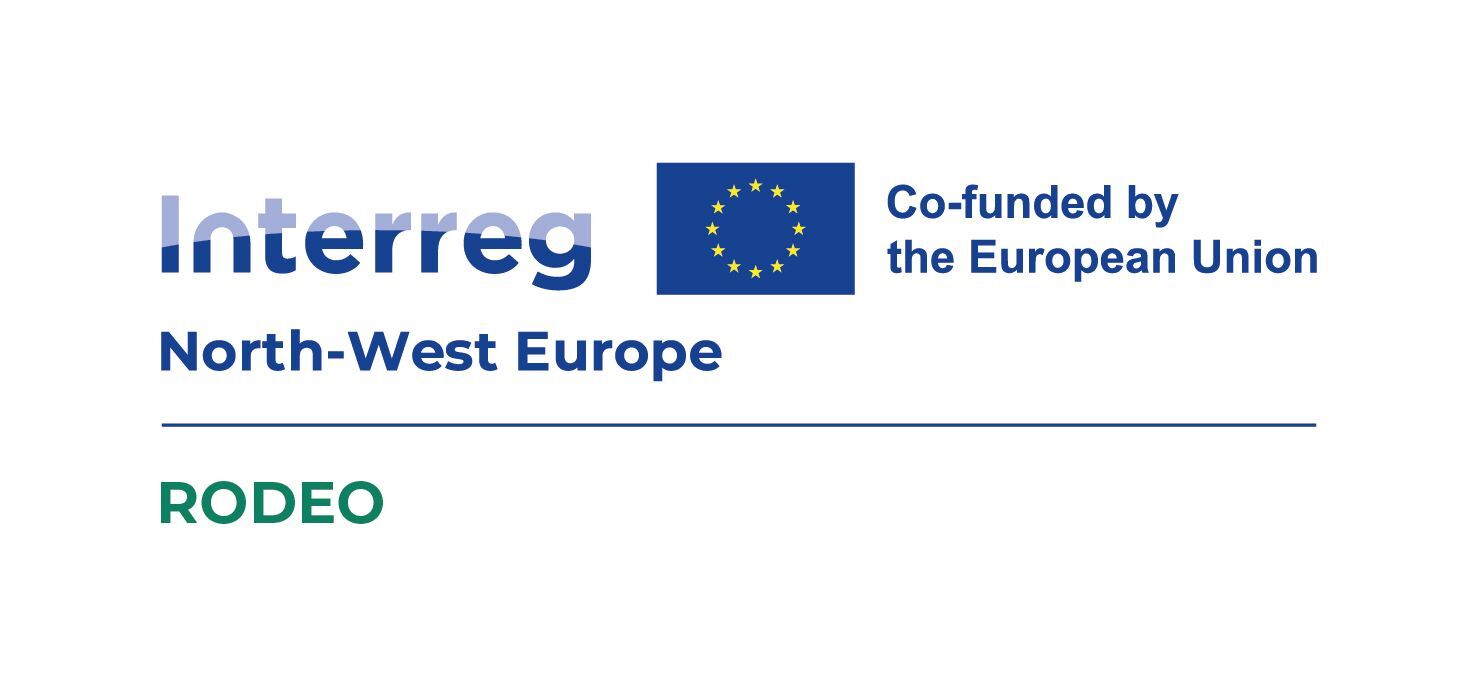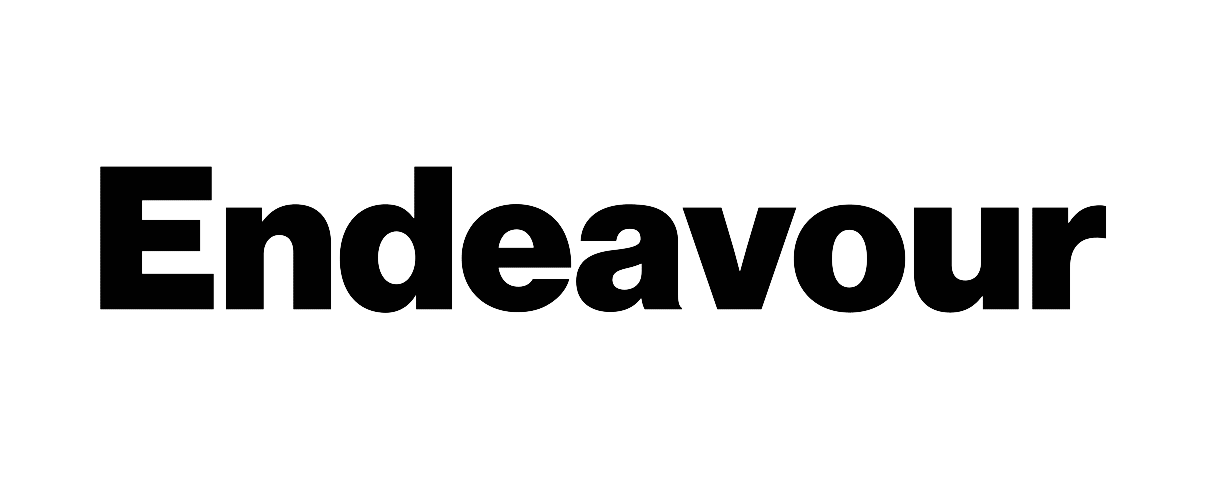How can we extend district heating systems as finemazed networks for existing houses? That is what we explore together with partners in Ireland, the Netherlands, France and Flanders in this Interreg project.
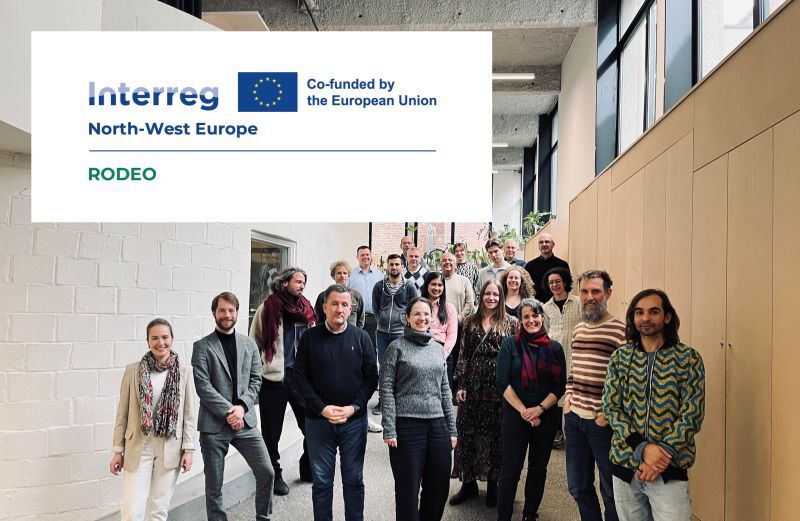
Today we manage to connect large heat users, new developments, public buildings or apartment buildings to district heating, but existing, small-scale housing continues to rely on individual solutions.
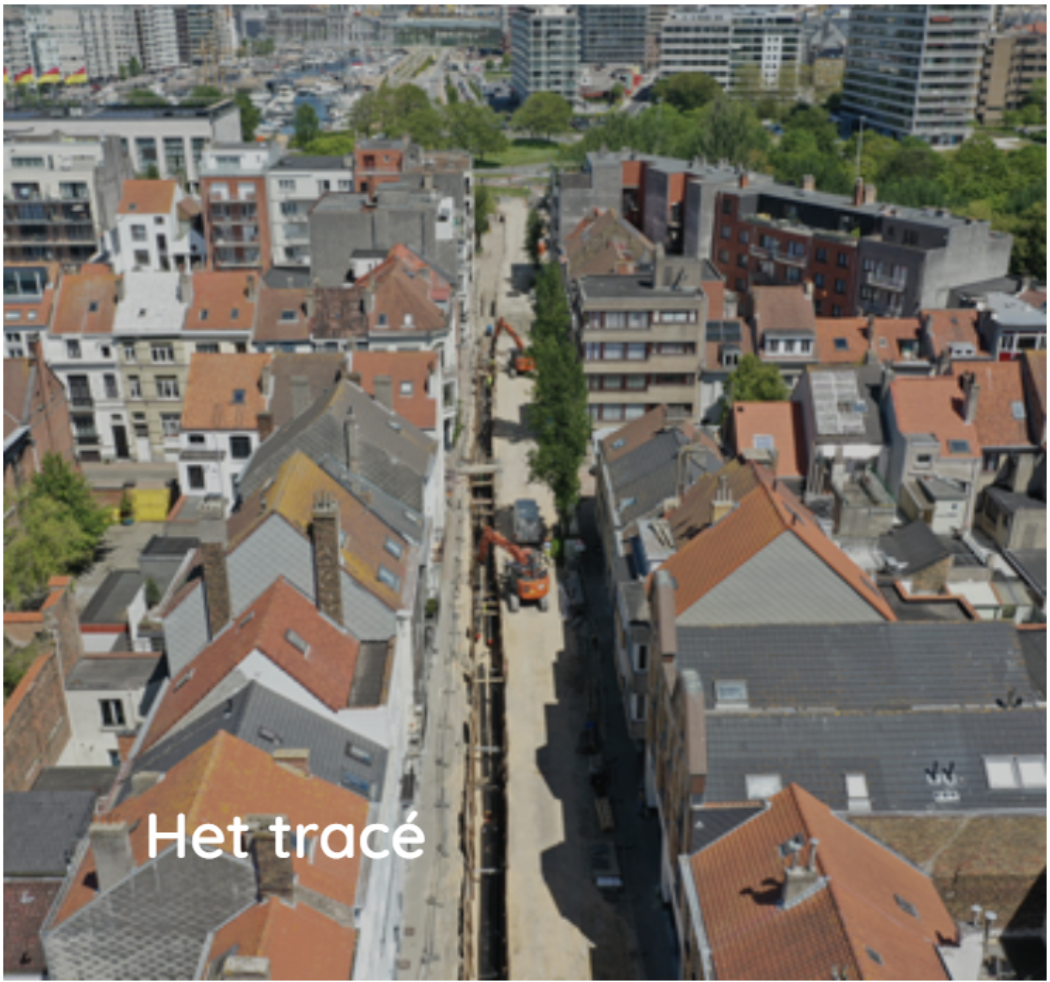
How can you make informed decisions about the financial dimensions of
collective heating infrastructure? We research this by developing a
financial model and testing it in 4 pilot cities: Ostend, Dunkerque, Assen and Dublin.
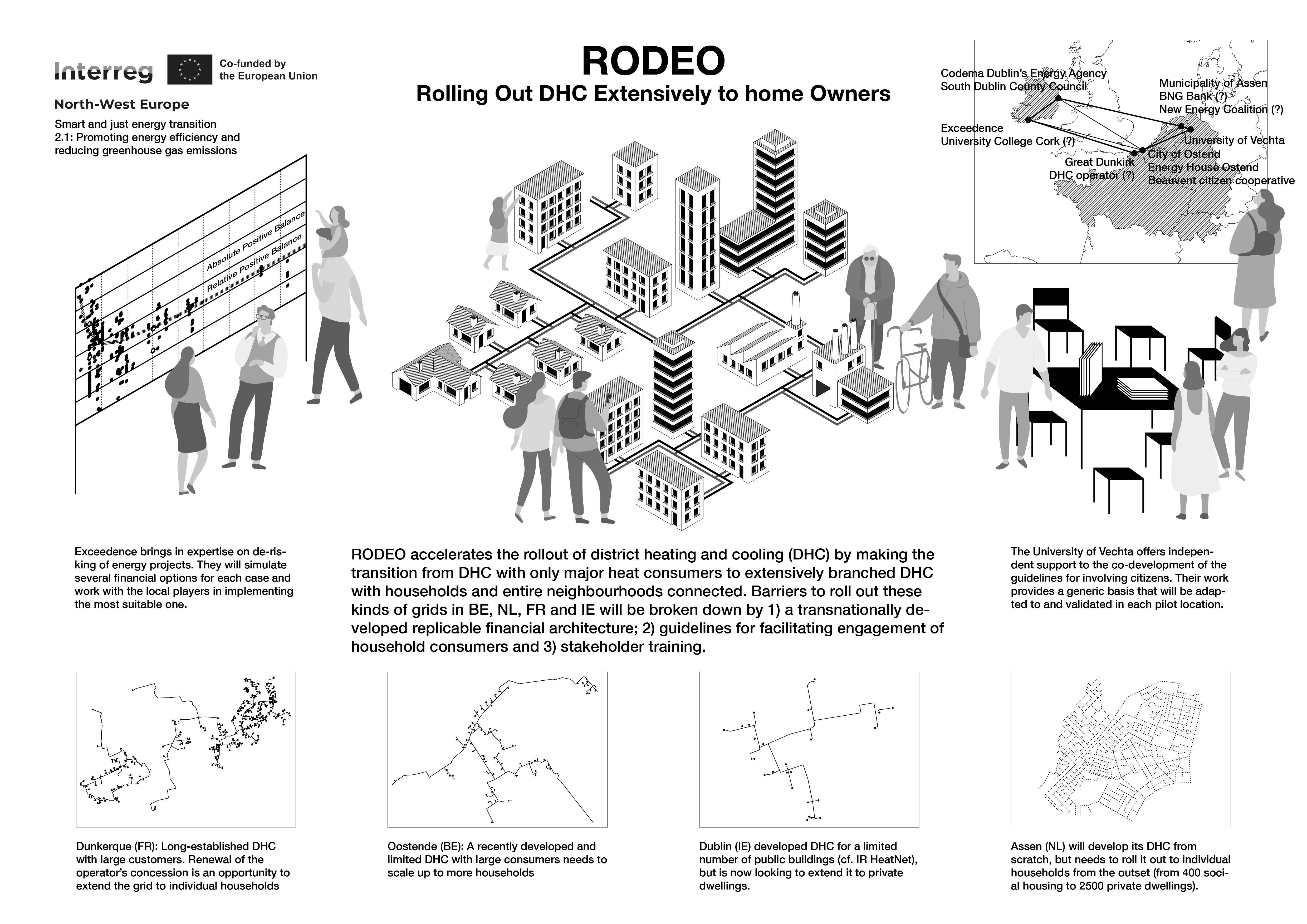
How can professional stakeholders such as public authorities, district heating operators and social housing companies collaborate to develop a finemazed district heating system in existing neighbourhoods? How can you involve citizens in a collective heating project? We develop a stakeholder strategy together with the 4 pilot cities.
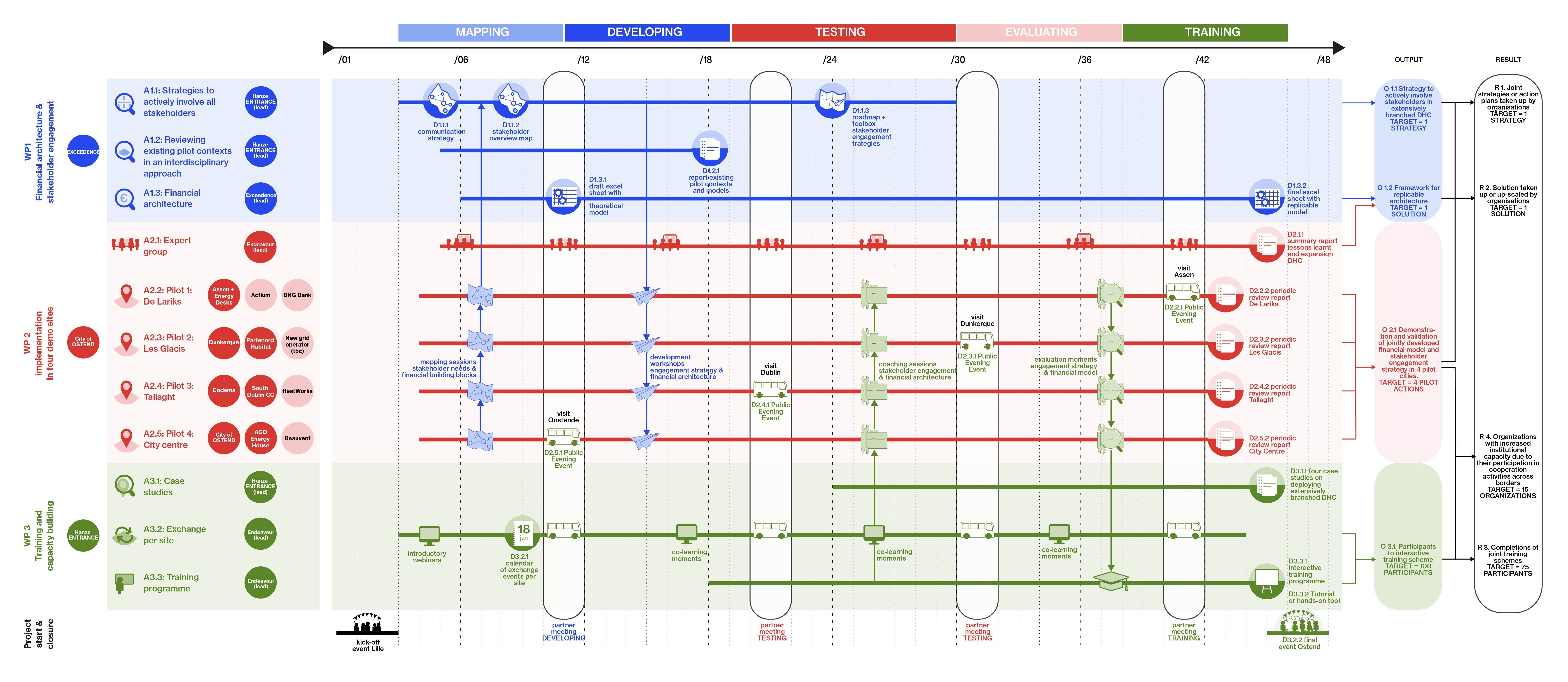
This project is financed with European funding through the Interreg NWE programme. The project’s objectives align with the Interreg North-West Europe programme priority ‘Smart and just energy transition’ and more specific ‘Promoting energy efficiency and reducing greenhouse gas emissions’. Click here for more information.
